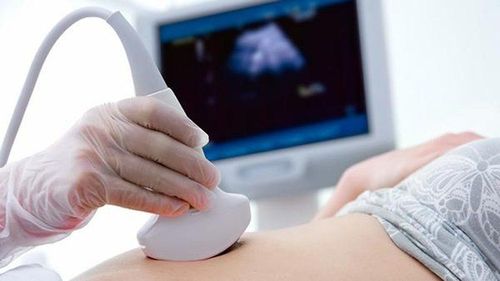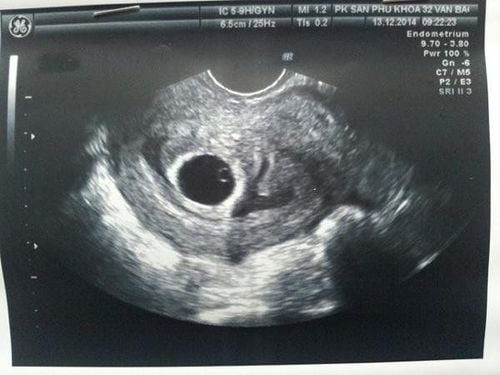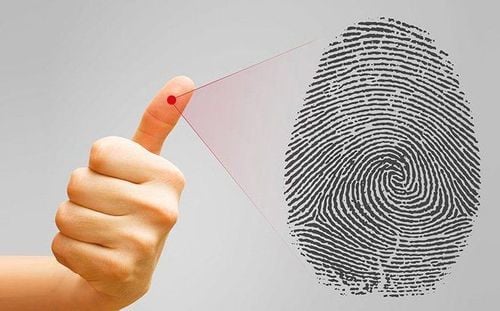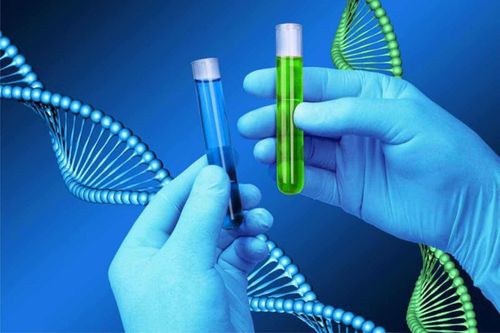This is an automatically translated article.
The article was professionally consulted by Dr. Nguyen Anh Tu - Doctor of Obstetric Ultrasound - Prenatal Diagnosis - Obstetrics Department - Vinmec Hai Phong International General Hospital.The extracellular DNA screening test is known as a non-invasive prenatal screening method with no risk of miscarriage, with a high detection rate, low false-positive and false-negative rates compared to with traditional sero-screening methods.
1. What is an extracellular DNA screening test?
First, we need to distinguish between screening tests and genetic diagnostic tests:
Screening tests only assess if your baby is at high risk for specific genetic conditions can or not.
Diagnostic tests can provide an answer to determine if the baby has a genetic disorder, diagnostic tests include tests such as amniocentesis or chorionic villus sampling.
The extracellular DNA screening test is known as a non-invasive prenatal screening method with no risk of miscarriage, with a high detection rate, low false-positive and false-negative rates compared to with conventional sero-screening methods.
The extracellular DNA screening test, also known as the cfDNA test, is used to screen for some specific conditions caused by abnormalities in the number of chromosomes, however, please note that this test Not all genetic disorders can be found.
2.Time to do extracellular DNA screening test
Experts recommend the appropriate time to perform this test is from 9 - 10 weeks of pregnancy until delivery.

3. Extracellular DNA screening test procedure
Extracellular DNA screening test is done based on finding and checking certain fetal genetic material (DNA) floating in the mother's blood. This blood sample is analyzed in a laboratory to check for an abnormal number of chromosomes 21, 18, and 13. This test mainly checks the fetus for triploidy 21 (Down syndrome), triploid 18 or 13 (triploid means that instead of having 02 chromosomes 21, 18 or 13, the fetus have an extra chromosome 21, 18 or 13), however, this test cannot find abnormalities that need to be screened with ultrasound such as neural tube defects, heart defects or abnormalities of the abdominal wall, as well as many other chromosomal and genetic disorders.
4. What do extracellular DNA screening results mean?
For extracellular DNA screening tests, the predictive value of a positive result depends on how often the genetic disorder occurs in your population.
We have an example like this: Screening results for Down Syndrome (Troloidy 21)
High risk group: A genetic disorder that occurs in a population with a higher frequency (eg 1 in 100 people or more
Low risk group: With a lower frequency of the genetic disorder occurring in the population (eg 1 in 1000 births or less)
Sometimes the test doesn't carry results or results are undetermined. In this case, you should consult a professional.

5. Notes when performing extracellular DNA screening test
Extracellular DNA testing is a very good method of checking for common chromosomal disorders in high-risk women, but it also has limitations.
Even a negative result does not rule out the risk that the fetus has a chromosomal disorder or other disorder for which DNA cannot be tested.
If you receive a positive result, further diagnostic testing is required to determine if the baby is indeed affected. False-positive results are more common in low-risk women than in high-risk groups.
If you have extracellular DNA screening, blood tests or ultrasound should be done at the same time to screen for neural tube defects and other conditions.
Please dial HOTLINE for more information or register for an appointment HERE. Download MyVinmec app to make appointments faster and to manage your bookings easily.
Reference source: Acog.org.







![[Video] The importance of prenatal diagnostic testing](/static/uploads/small_20190724_084208_028413_xet_nghiem_max_1800x1800_jpg_1d7ac45f78.jpg)





